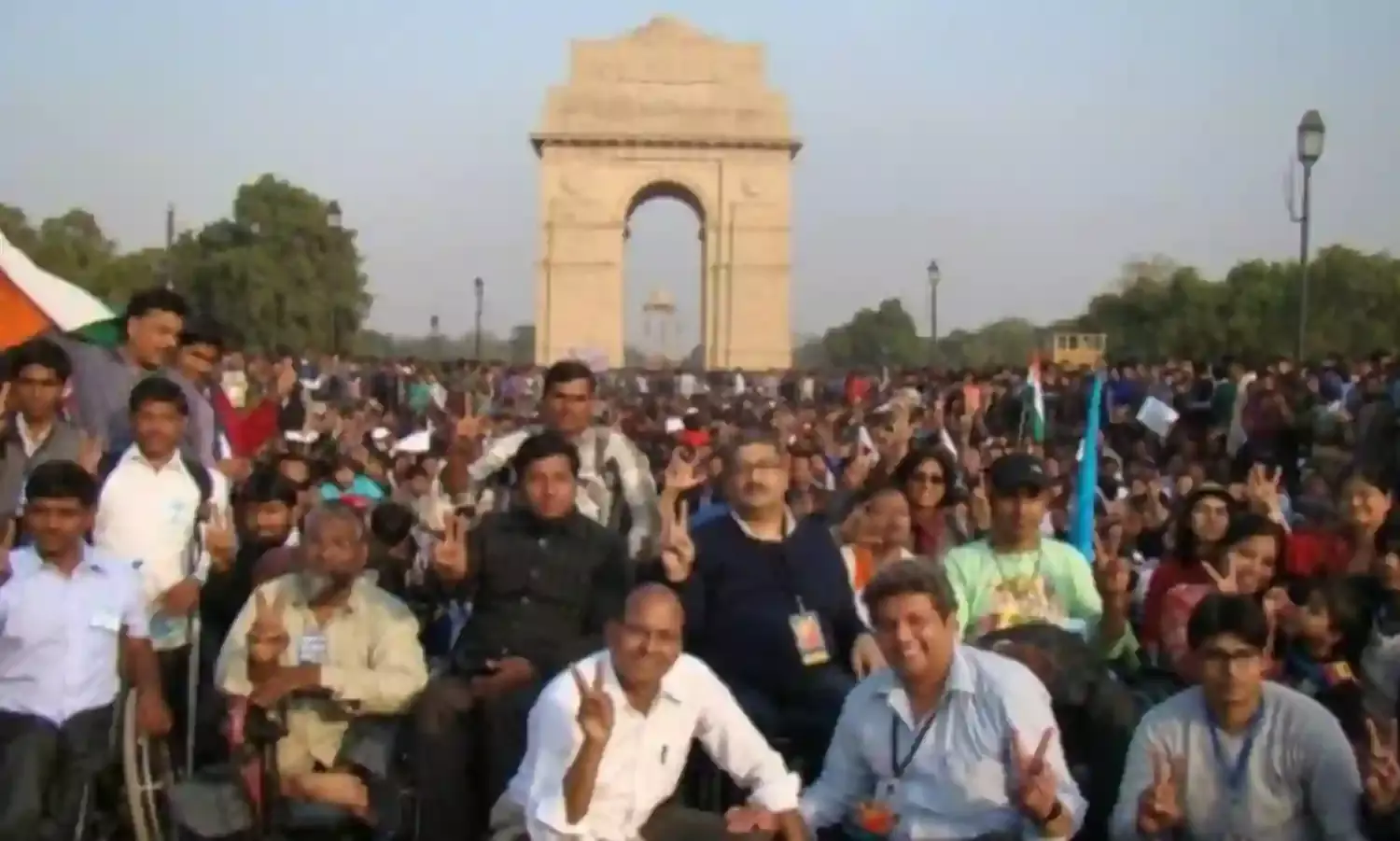International Consultation on the ‘Human Rights of Persons with Disability’
On disability rights

A three day international consultation on the ‘Human Rights of Persons with Disability’ will be taking place in the national capital, from January 17 to 19. Over 150 stakeholders representing NGOs, academics, and legal experts are expected to participate in the event organised by the Indian Social Institute.
The three day consultations will cover a range of issues pertaining to disability rights, with a focus on International Human Rights law standards on Disability Rights, obligation of State Parties under the United Nations Convention on the Rights of Persons with Disabilities, equality, non-discrimination, right to education, employment, accessibility, and the implementation of the Rights of Persons with Disability Act, 2016.
While India ratified the United Nations Convention on the Rights of Persons with Disability (UNCRPD) in October 2007, its implementation within the country still remains poor. The purpose of the Rights of Persons with Disability Act, 2016 (RPD Act) replacing the Persons with Disability Act, 1995 was to ensure that the laws and provisions pertaining to persons with disabilities are in line with the UNCRPD. However the awareness, regarding the RPD Act, and its implementation three years on remains poor.
Persons with Disabilities (PwDs) in India are still faced with discrimination, exclusion, lack of opportunities for education and employment, and face barriers in accessing and exercising even their basic rights. Stigma, poor understanding of what disability is, its causes and associated stereotypes have for decades contributed to the marginalisation of PwDs in India.
Taking into account these ground realities, the international consultation organised aims to create awareness on the basic underlying principles of the UNCRPD and the RDP Act; generate and stimulate news ideas about interpretation of the legal regime reflected in UNCRPD and RPD Act; celebrate the paradigmatic shift from the medical model to the social model of disability; and critically engage with public policy in India to achieve the targets set for the Sustainable Development Goals 2030.
Dr. Sanjay S. Jain, Associate Professor ILS Law College, Pune, who has helped Indian Social Institute organise this consultation and is one of the speakers at the event, in his address to the press started off by highlighting the lack of attention paid to PwD’s and issues around disability as they are not seen as ‘glamorous’ or ‘controversial’. He also mentioned how the budgetary allocation for PwDs in the Union Budget over the years has decreased, and the problems with the NDA government’s decision to refer to PwDs as ‘divyangjan’ (meaning divine ones).
Further, he highlighted the strong objections raised by the UN Committee on the Rights of Persons with Disability - a body of independent experts which monitors implementation of the Convention by the States Parties - over the use of the term ‘divyangjan’.
The organisers of the consultation have laid down two expected outcomes. The first being the adoption of the ‘Delhi Declaration on Human Rights of the Disabled 2020’, which would be drafted and finalised in the course of the consultation.
The second expected outcome is a Judgement on the proceedings of a Moot Advisory proceeding on the theme of ‘Appointment of Blind Persons as Judges of Lower Courts.’ In the proceedings the counsels arguing on behalf of PwDs will be Adv. S.K. Rungta, Senior and Adv. Vrinda Grover, and Adv. Meenakshi Arora and Adv. Jain Dehadrai for the Union of India. They will argue before the Bench presided over by Justice Madan B. Lokur (retired), Supreme Court (SC) of India, Justice Anand Mohan Bhattarai, SC of Nepal, Justice A.P. Shah (retired), High Court (HC) of Delhi, Justice Prabha Sridevan (retired), HC of Chennai and Anna Lawson, Director, Disability Studies Centre, University of Leeds.
In January 2019, a Division Bench of the SC, in a judgement laid down that a person with more than 50% visual or hearing impairment shall not be eligible to be a Judicial Officer. The decision was criticised by several disability rights activists and organisations across the country, as a failure of the SC in upholding and protecting the rights of PwDs.
Other experts participating in the consultation include Prof. Amita Dhandha, Director, Disability Studies Centre, NALSAR Hyderabad; Dr. Anita Ghai, School of Human Studies. Ambedkar University, Nipun Malhotra, Founder and CEO of NIPMAN Foundation, Dr. Renu Adlakkha, Centre for Women’s Development Studies and Prof. T.S.K Hemratne, University of Ruhuna, Sri Lanka.
(Cover Photo: From a 2014 rally in Delhi for the enactment of a disability rights law)



